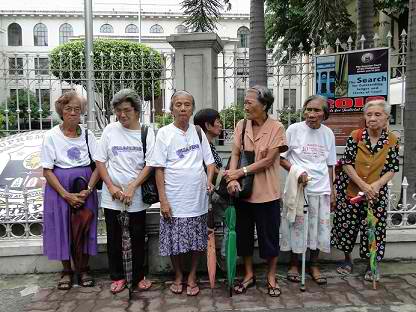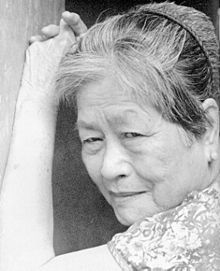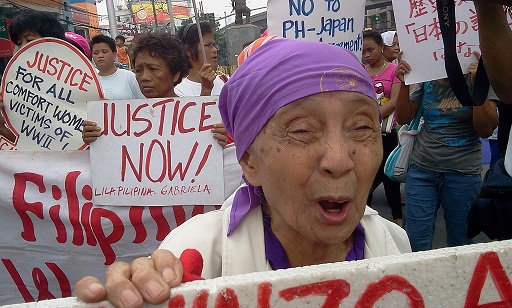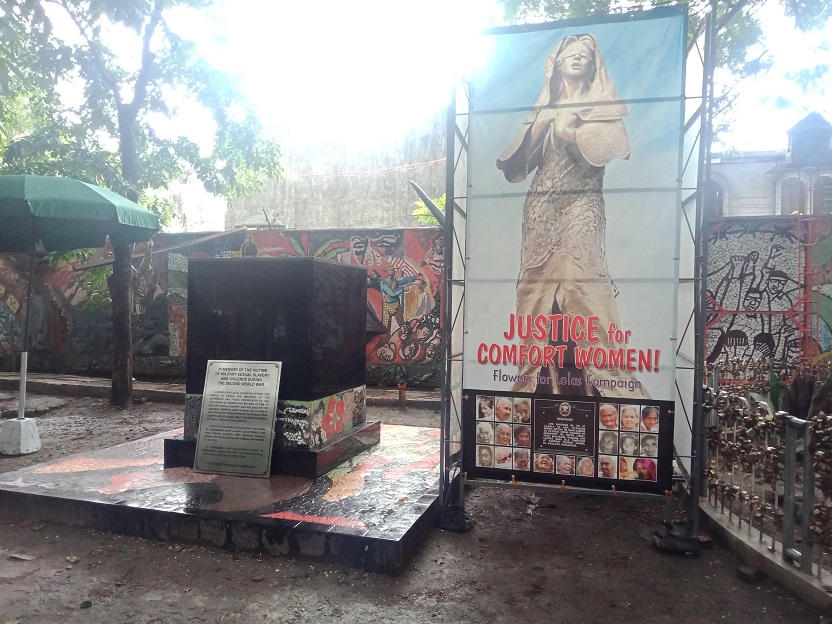By ELLEN TORDESILLAS
IN the sunset of their lives, 17 Malaya Lolas (Liberated Grandmothers) staged a rally Monday before the Supreme Court protesting the plagiarism in the decision that denied them remedy for the wartime savagery they suffered.
CenterLaw’s Harry Roque, counsel for 40 grandmothers who were forced to serve as “comfort women” to Japanese soldiers during the war, said what the Malaya Lolas got from the High Court was a “triple whammy.”
“They were denied legal remedy using sources that were plagiarized and twisted to support an unjust decision,” Roque said.
The April 28, 2010 SC decision penned by Associate Justice Mariano C. del Castillo said the court greatly sympathized with the cause of petitioners.
But it said, “ Regrettably, it is not within our power to order the Executive Department to take up the petitioners’ cause. Ours is only the power to urge and exhort the Executive Department to take up petitioners’ cause.”
The Executive Department represented by Foreign Secretary Alberto Romulo had argued that “the Executive Department has determined that taking up petitioners’ cause would be inimical to our country’s foreign policy interests, and could disrupt our relations with Japan, thereby creating serious implications for stability in this region. “
Roque, however, found a number of provisions cited by Del Castillo and concurred in by nine justices, including then Chief Justice Reynato Puno and now Chief Justice Renato Corona, lifted verbatim from other articles without any attribution.
Justices Antonio Carpio concurred “on the ground that petitioners; claims are barred by the Peace Treaty between RP and Japan.”
Puno and Justices Antonio Nachura and Conchita Carpio-Morales concurred “in the result,” meaning they agreed with the ruling but not on the arguments laid down in the ruling.
One of the quotes cited by Roque as having been plagiarized by Del Castillo was from an article “A Fiduciary Theory of Jus Cogens” by Ivan Criddle and Evan Fox-Descent that appeared in the Yale Journal of International Law. Page 331 of the article stated, “ In international law, the term ‘jus cogens’ (literally, ‘compelling law’) refers to norms that command peremptory authority, superseding conflicting treaties and custom.”
The exact quote, including parentheses and comma, appeared on pages 30 and 31 of Del Castillo’s judgment without any attribution.
Another source of Del Castillo’s plagiarism, Roque said, was an article written by Mark Ellis on the subject for Case Western Reserve Journal of International Law in 2006.
Roque cited a sentence on page 227 of Ellis article: “The concept of rape as an international crime is relatively new.” That’s the first sentence of Del Castillo’s footnote 65 without any attribution.
Roque said, “In this controversy, the evidence bears out the fact not only of extensive plagiarism but also of twisting the true intents of the plagiarized sources by the ponencia to suit the arguments of the assailed judgment.”
Del Castillo also used without attribution portions of an article “Enforcing Erga Omnes Obligations in International Law” by Christian Tams, published in 2005, according to Roque.
SC spokesman Midas Marquez said Del Castillo denies allegations of plagiarism, saying “he made the proper attributions and citations in the April 28, 2010 decision on comfort women.”
But Roque said, “Res ipsa loquitor. The thing speaks for itself.”
The supplemental motion for reconsideration reiterates the stand of the Malaya Grandmothers that their claims could not have been a legal subject of the treaty of peace as these are not private claims “but are in fact claims arising from war crimes and jus cogens norms subject to erga omnes obligations under international law. “
They asked the High Court to direct the Executive Department to espouse their claims for official apology and other forms of reparations against the State of Japan before the International Court of Justice or other international legal forums or tribunals.




